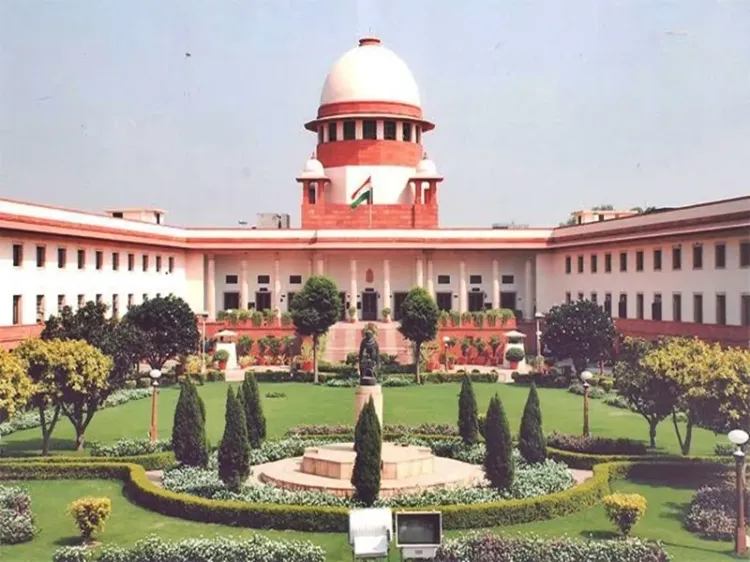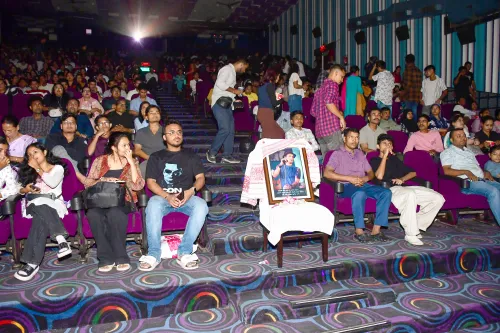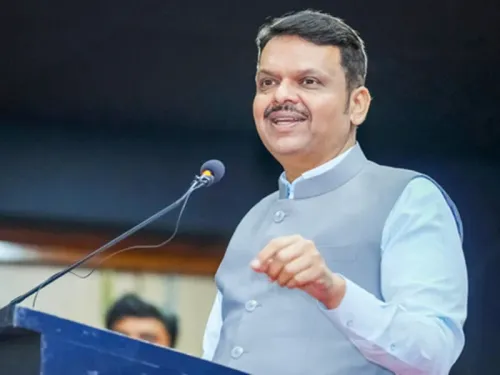Supreme Court Schedules Hearing on April 16 for Challenges to Law Excluding CJI from EC Appointment Panel

Synopsis
Key Takeaways
- Supreme Court hearing scheduled for April 16.
- Petitions challenge a law excluding the CJI from EC appointments.
- The Justice Kant-led bench aims to prioritize these urgent cases.
- Legislation stipulates a new selection committee for CEC appointments.
- Multiple PILs contesting the law's constitutional validity have been filed.
New Delhi, Mar 19 (NationPress) The Supreme Court has scheduled a hearing for April 16 regarding multiple petitions contesting the legislation enacted by Parliament that omits the Chief Justice of India (CJI) from the appointment process of high-ranking officials within the Election Commission.
A bench comprising Justices Surya Kant and N. Kotiswar Singh postponed the hearing by four weeks, after advocate Prashant Bhushan, representing the Association for Democratic Reforms (an NGO), pointed out that the case is listed as item number 38 and is unlikely to be reached on that day.
The Justice Kant-led bench indicated that it would make efforts to limit the number of urgent cases scheduled for the hearing date, ensuring that the petitions questioning the validity of the Chief Election Commissioner and other Election Commissioners (Appointment, Condition of Service and Term of Office) Act, 2023 are prioritized on the agenda for April 16.
In March 2023, a Constitution Bench of the Supreme Court ruled that appointments of the top officials of the Election Commission must be conducted by the President based on the advice of a panel that includes the Prime Minister, the Leader of the Opposition (LoP) in the Lok Sabha, and the Chief Justice of India.
“We declare that the appointment of the CEC and other ECs will be made based on recommendations from a three-member committee consisting of the Prime Minister, the LoP in the Lok Sabha, and, if there is no LoP available, the leader of the largest opposition party in the Lok Sabha based on numerical strength, along with the Chief Justice of India,” stated the apex court, emphasizing that its guidelines remain effective until Parliament enacts a law consistent with Article 324(2) of the Constitution.
Following the apex court's ruling, Parliament enacted legislation stipulating that the Chief Election Commissioner (CEC) and other Election Commissioners (ECs) would be appointed by the President based on the recommendations from a Selection Committee comprised of the PM, the Leader of the Opposition (or the largest opposition party) in the Lok Sabha, and a Union Cabinet Minister designated by the PM.
Numerous Public Interest Litigations (PILs) have been submitted to the Supreme Court contesting the constitutional validity of the Chief Election Commissioner and other Election Commissioners (Appointment, Condition of Service and Term of Office) Act, 2023.
One petition, filed by a lawyer from Noida, requested the annulment of the gazette notification issued by the Union government on December 28, 2023, and the reinstatement of the Chief Justice of India in the selection committee for appointing the CEC and ECs. The petition also called for the Union of India to implement an independent and transparent selection system, forming a neutral committee for the appointment of the CEC and other ECs.
On February 19, the Justice Kant-led bench postponed the hearing after Solicitor General Tushar Mehta requested a delay, as he was engaged in proceedings before the Constitution Bench concerning whether courts hold the authority to amend arbitral awards under the Arbitration and Conciliation Act, 1996.









